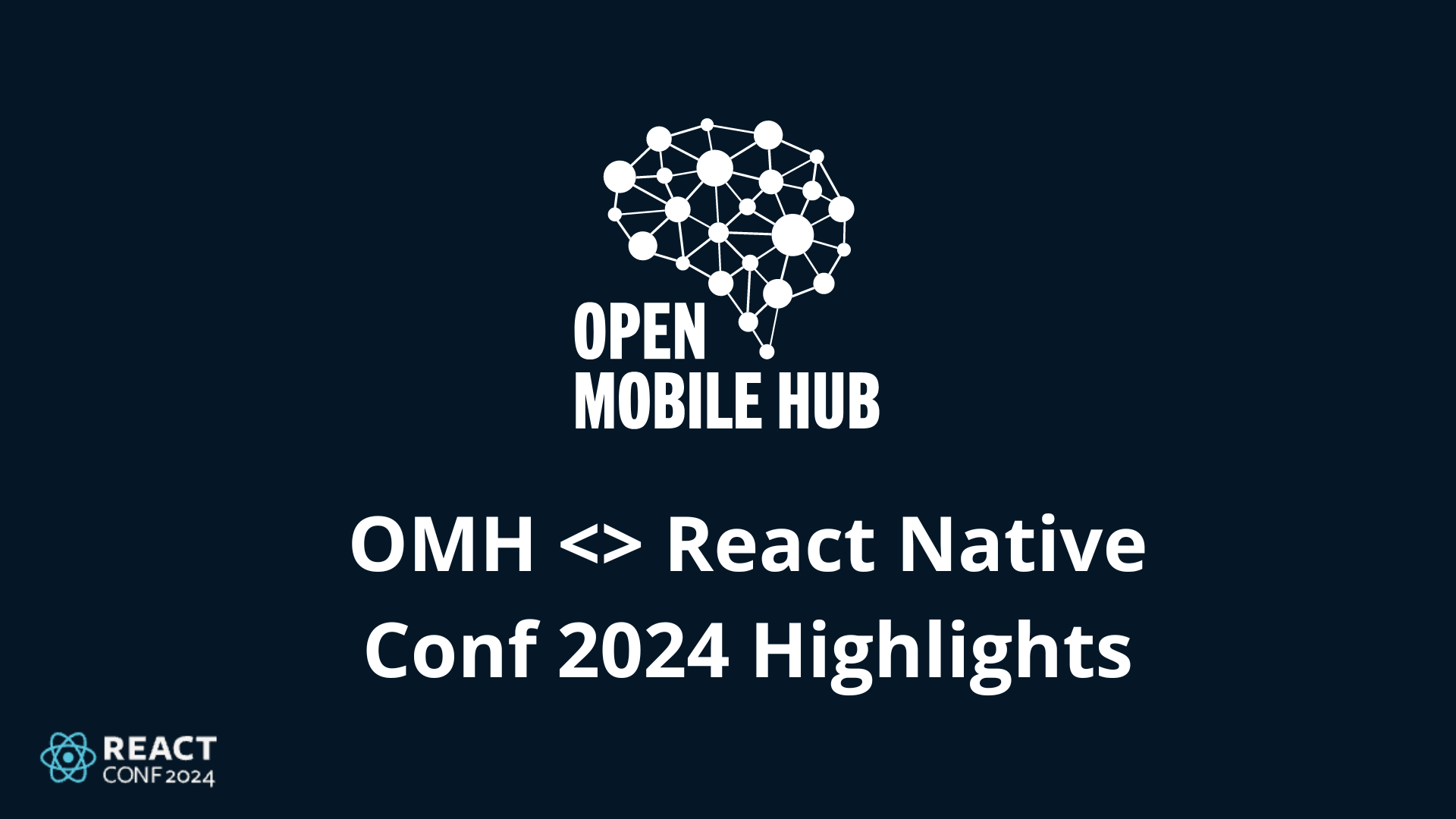We are thrilled to share insights from React Conf 2024, held in Henderson, Nevada! Celebrating React’s 10th anniversary, this event brought together industry leaders from Meta, Shopify, and Vercel to discuss the latest in React technology, including React 19, server components, and the future of React Native.
OMH’s focus is on expanding the support of more service providers through a unified interface, bridging the gap between Android GMS and non-GMS, and expanding to iOS and HarmonyOS Next. The potential impact on the development landscape is immense.
Key Takeaways
- React Native’s New Architecture: The new architecture of React Native, featuring JSI, Fabric, TurboModules, and CodeGen, promises enhanced performance and is now officially in beta with React Native 0.74. These advancements enable direct communication between JavaScript and native modules, reducing overhead and boosting responsiveness.
- Cross-Platform Development: React Native’s “learn once, write anywhere” approach continues to empower developers to create seamless applications across iOS, Android, and beyond. This cross-platform efficiency is crucial for developing high-quality apps quickly and effectively.
- Major Adopters: Companies like Facebook, Microsoft, Amazon, and Tesla are leveraging React Native for its cost-effectiveness, faster development, and vast ecosystem. These major adopters showcase the framework’s flexibility and robustness across various use cases.
- Innovation in XR: React Native now supports Apple Vision Pro, opening new possibilities for immersive XR experiences on visionOS. This support enables developers to create innovative XR applications that harness the full potential of visionOS, including immersive spaces and volumetric windows.
Open Mobile Hub <> React Native development
Engaging with developers at the conference allowed us to align with the latest advancements in React Native. Collaborations with partners are essential for staying at the forefront of technology and ensuring OMH’s cross platform adaptability. Here are some next steps after the conference:
- Given React Native’s momentum and shared vision of providing cross platform solutions to app developers, it continues to be a great platform to develop OMH modules
- Utilize Existing Solutions: By adopting frameworks and tools discussed at the conference, OMH can simplify development processes, reduce overhead, and accelerate time-to-market for applications. Utilizing these existing solutions will enhance OMH’s ability to address common development challenges effectively.
- Developer Efficiency: Developers can leverage their existing React Native skills, reducing learning curves and maximizing productivity while adopting OMH. This efficiency will streamline development processes and improve overall project outcomes.
Why Do We Care About Cross-Platform Development and React Native?
In today’s rapidly evolving technological landscape, the diversity of platforms is both a challenge and an opportunity. At OMH, we believe that innovation stems from disrupting the traditional OS ecosystem. While this disruption may seem daunting, it is a necessary step toward achieving seamless integration and efficiency across various devices and operating systems.
The crux of this innovation lies in the ability to develop applications without the need to relearn native frameworks for each platform. Native development, while powerful, often requires developers to start from scratch for each operating system, leading to redundant efforts and increased development time. This is where cross-platform frameworks like React Native come into play.
React Native empowers developers to define their app functionality in a way that abstracts them from the underlying platform specifics. By utilizing React Native, developers can write code once and deploy it across multiple platforms, such as iOS, Android, and beyond. This approach significantly reduces the overhead associated with maintaining separate codebases for different platforms.
Moreover, React Native leverages a robust ecosystem of tools and compilers that handle the heavy lifting of targeting each platform. This allows developers to focus on creating innovative features and delivering a consistent user experience, while the framework ensures optimal performance and responsiveness.
At OMH, we are committed to embracing cross-platform development with React Native. By doing so, we aim to streamline our development processes, enhance developer productivity, and accelerate time-to-market for our applications. This strategy not only aligns with our vision of providing unified interfaces and comprehensive support for multiple platforms but also positions us at the forefront of technological innovation.
To get started with React Native at OMH, take a look at our Quickstarts:
- Maps SDK supports Google Maps, Mapbox, Azure Maps, and OpenStreetMap
- Auth SDK supports Google, Microsoft, Facebook, and Dropbox
Join us on this exciting journey as we redefine what’s possible in mobile and device technology, driving forward the future of cross-platform development with React Native.
